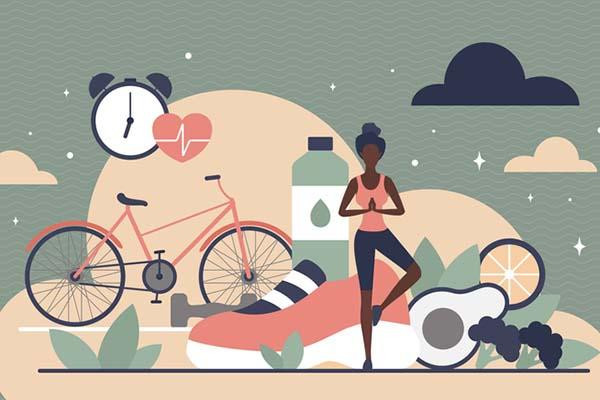
5 timeless habits for better health

What are the symptoms of prostate cancer?

Is your breakfast cereal healthy?

When pain signals an emergency: Symptoms you should never ignore

Does exercise give you energy?

Acupuncture for pain relief: How it works and what to expect

How to avoid jet lag: Tips for staying alert when you travel

Biofeedback therapy: How it works and how it can help relieve pain

Best vitamins and minerals for energy

Should you take probiotics with antibiotics?
Mental Health Archive
Articles
5 timeless habits for better health
Influencers, news headlines, and well-meaning friends and family offer conflicting advice on wellness. Quick fixes and fads may do little for our health, and some even prove harmful. Try to work these five simple habits that can boost health and wellness into your everyday life.
Hidden hurdles to mental health care
A quarter of American adults live with a mental health disorder such as anxiety, depression, obsessive-compulsive disorder, or post-traumatic stress disorder. But more than half don’t seek help. Internal and external barriers may stop them from getting the care they need. Internal barriers are emotions or excuses people make to avoid treatment. External barriers include cost or difficulty finding a provider who can meet someone’s individual needs. To push past obstacles, people can investigate less-expensive mental health programs or reframe guilt-inducing thoughts.
Second-guessing symptoms
While many health symptoms resolve quickly on their own, others linger and make people wonder if they need to see a doctor. Symptoms that warrant a doctor’s visit include drawn-out cold symptoms such as fatigue, cough, and low-grade fever; a fever lasting more than four days; unexpected symptoms when starting a new medication or after surgery; certain digestive problems; and new or worsening mental health issues.
Chronic stress may raise women’s stroke risk
A 2025 study found that chronic stress is associated with higher stroke risks among women under 50, but not in men.
How to avoid catastrophic thinking
People trapped in catastrophic thought patterns are convinced everything is awful and won’t improve, which creates a constant sense of helplessness, anxiety, and stress. One way to stop this doomsday thinking is learning how to mentally pivot. Mental pivoting is the action of consciously deciding to deflect thoughts when they arise, so they don’t fester and grow. By doing this, people can feel more in control of invasive thoughts when they arise.
An introvert's guide to socializing
An active social life is good medicine for the body and brain as it lowers the risk for many chronic diseases and protects against dementia and mild cognitive impairment. However, people who are introverts and enjoy their solitude can struggle with engagement. These individuals can benefit from socializing while maintaining their comfort levels by engaging in activities like joining social clubs and other groups, taking classes, and attending public events.

5 timeless habits for better health

What are the symptoms of prostate cancer?

Is your breakfast cereal healthy?

When pain signals an emergency: Symptoms you should never ignore

Does exercise give you energy?

Acupuncture for pain relief: How it works and what to expect

How to avoid jet lag: Tips for staying alert when you travel

Biofeedback therapy: How it works and how it can help relieve pain

Best vitamins and minerals for energy

Should you take probiotics with antibiotics?
Free Healthbeat Signup
Get the latest in health news delivered to your inbox!
Sign Up








